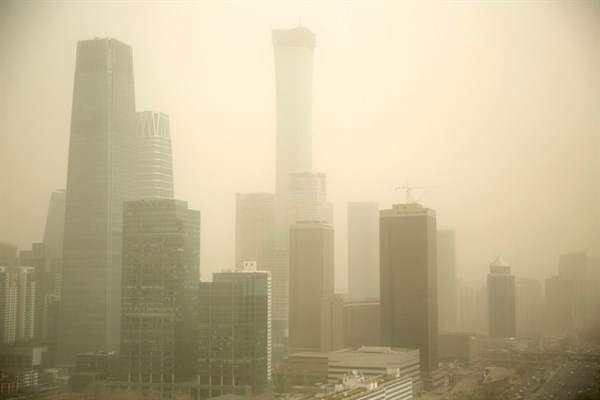As part of the same 13th National People’s Congress that abolished his term limits, Chinese President Xi Jinping oversaw a significant Cabinet reshuffle earlier this month. The State Council, the chief executive body of the Chinese government, now includes a Ministry of Ecology and Environment, which early press reports, from both the Chinese and international media, rendered as the Ministry of Ecological Environment. The ministry will be led by Li Ganjie, who has since June 2017 served as the minister for environmental protection. Its broad portfolio includes what had been under the purview of the Ministry of Environmental Protection, as well as the climate change policy management that had been the responsibility of the powerful National Development and Reform Commission, in addition to responsibility for land and water quality.
In the same way that the National People’s Congress set the stage for Xi’s unchallenged leadership of China, Xi is setting up the Ministry of Ecology and Environment as the vehicle to oversee the greening of Chinese society. As Jackson Ewing put it, this new ministry will, on paper at least, be “the most powerful dedicated environmental regulatory body in the history of modern China.” By centralizing environmental regulatory policy in this way, Beijing is likely working toward two interrelated goals. Whether these goals are achieved will depend a lot on how much power the new ministry can wield to effectively serve as an instrument for ambitious action on the myriad environmental and climate change priorities facing China at home and abroad.
The first goal is to demonstrate that Xi, and the various agencies of his government, are fully invested in climate change and environmental protection policy as a plank of Beijing’s new aspirations for international leadership. At the opening of the National People’s Congress, Xi declared that China “will devote more energy and take more concrete measures to advance the building of an ecological civilization, accelerate efforts to develop green production and ways of life, and work harder to tackle prominent environmental problems.” Since President Donald Trump’s announcement that he intended to pull the United States out of the Paris climate change agreement, China has been quick, at least rhetorically, to step into the void.

